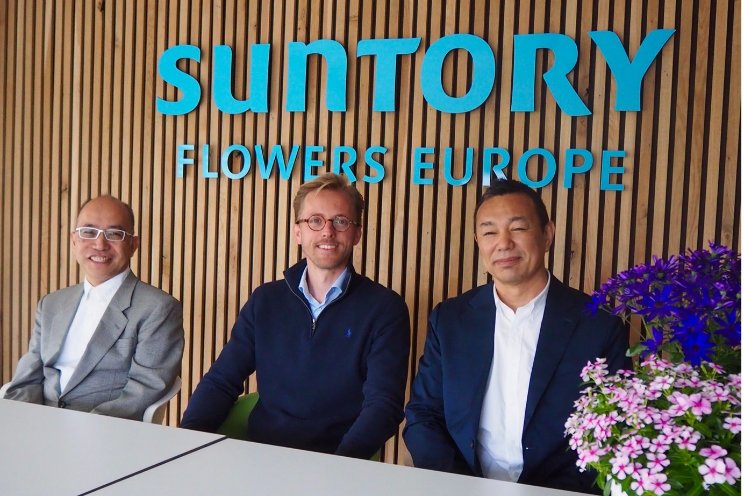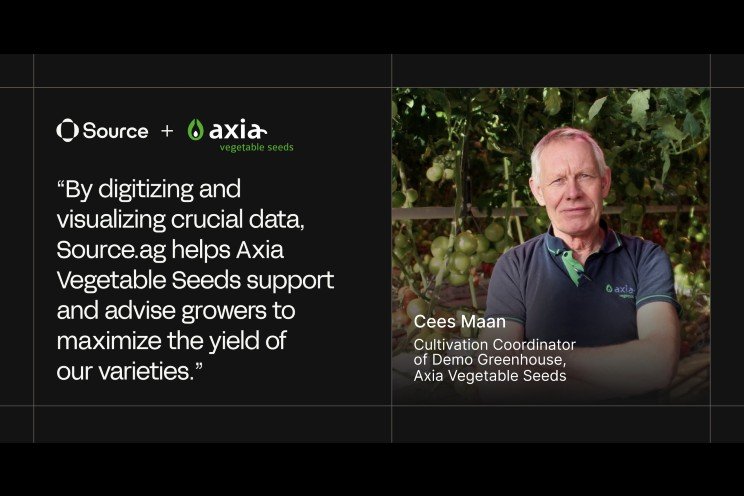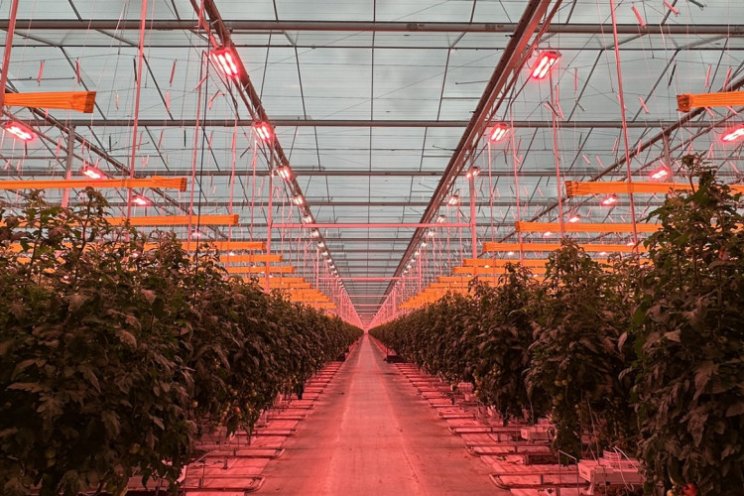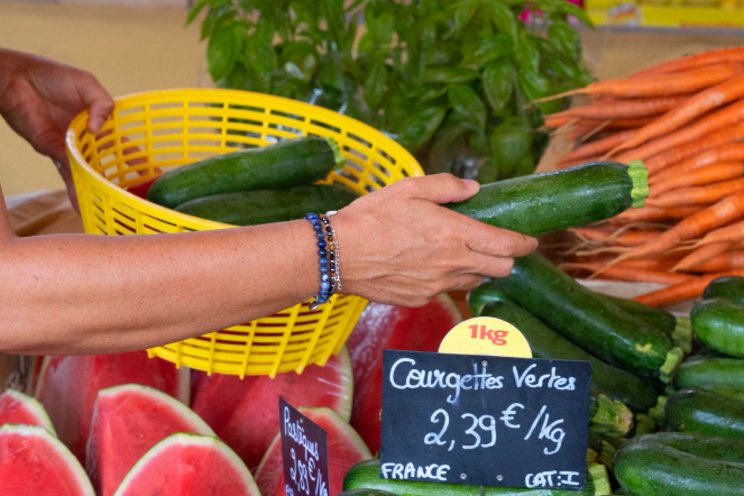Women to use greenhouse farming to grow exotic veggies
Added on 16 June 2021
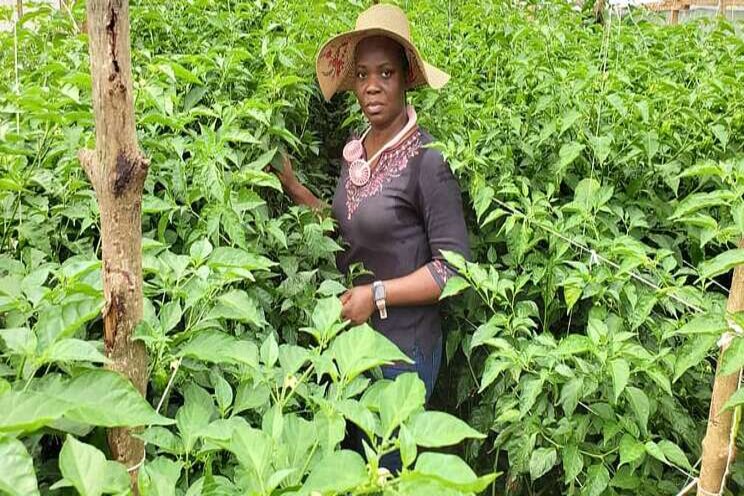
Before establishing the farm in 2015, she worked in a financing company in the United States. In this episode of our Women in Agriculture, Ms Mbulu shares her experience.
Q: So, can you put us through your journey in Agriculture?
Ms Mbulu: I worked in corporate Nigeria and the U.S. for a while and I wanted to start a business and at that time there were a lot of calls by the Nigerian government on the need to diversify the economy. Agriculture was in the mind of a lot of people and I felt that I could do it because I wanted to start a sustainable business that I could retire into and looking at the fact that it was a very viable sector in Nigeria considering Nigeria's peculiarity, we have a large young population plus viable land and there was an increasing demand for reliable and quality food suppliers.
That was why I went into it basically and from that time also, somebody had told us then that the Lagos state government was allocating agric land in Epe through the Agric Land Holding Authority. We applied and we were given land and basically, it was like a done deal; like a confirmation of what we had to do at that time so u went into it.
I started in 2015 when the land was allocated. I was one of the first to start in that area, basically, the land preparation. I got my earthen pond dug (I have 10 earthen ponds with a capacity of 40 tonnes), got the bulldozer, etc. All I did was basically preparation.
The bulk of what I did in the first year was getting the land ready, getting the heavy equipment in before we started planting. The planting started in 2016. It took me about 6 to 8 months before I started planting. The land was issued in the last quarter of 2015 and before we got the labourers and equipment in all that. The actual planting started in 2016.
Q: There are a variety of sub-sectors in the value chain, which of them are you active in?
Ms Mbulu: I cultivate vegetables (exotic vegetables) which include cucumber, parabolas, pit tail; I do greenhouse farming. When you do greenhouse in Nigeria, it is not a temperature-controlled environment; it's like a net house. It gives it some relief from the elements like rain and sun. So it's controlled to some extent. The temperature is controlled though we don't have a cooking system there. I do plantain and fishery. Categorically speaking, I do crop farming which is the greenhouse and open field; I do animal production which is fish farming. My greenhouse farming is not in a glasshouse, it sits more like a net house. We have ultra-violet (UV) regulated netting. The netting is specially built to control the UV of sunlight, it minimises it.
Q: Since then, have you expanded the number of land you have?
Ms Mbulu: No I've not but I've applied to the Ogún state government. We have something similar there and I'm still going through the paperwork and the process. I've applied for more hectares in Ňgún state and hopefully, it'll come through this year.
Q: Cultivating vegetables and all on a large scale, do you export some of your products?
Ms Mbulu: The vegetables; no. Our focus when we got the land was with the aim of exporting and we know that we cannot just go into exporting so what I did was try to fine-tune my processes, look for viable means of ensuring that the quality is improved on a daily basis. I can say right now that we are still in the fine-tuning process to ensure that what we do is good. And also, the demand in Nigeria is actually very strong. So taking things outside at the moment for us is not viable because we all have a large demand and we are still trying to ensure that the process is sustainable, our controls are there, we don't want to export any substandard goods. We understand the requirement for exporting and we are very cognizant of the fact that whatever we are doing now is building up to that.
Q: Seeds, machines, and fertilizers are really big problems for farmers and they are very important inputs. How are you able to handle your challenges when it comes to seeds and fertilizers?
Ms Mbulu: Well, there are many challenges facing the agricultural sector because of our economy, not just in Agriculture. In fact, doing business in Nigeria is very tough. One of the problems we have with inputs is ensuring that these are quality grade not fake, you have the money to buy it but you don't find it. There are so many challenges facing inputs, not just the seeds and chemicals, even the manpower is a problem. Mechanisation (having tractors) to manage and make your process go easier is a problem. Back to your question of fertilizers and seeds, I'm very fortunate to have my farm at Epe. We have three or more accredited dealers. They deal in a lot of seed companies; they are accredited dealers.
The chemical companies, they deal with them so we buy from them. Buying from them gives you that comfort of mind. I can't go to the markets and say I want to buy something. I use those stores around me which other farmers use as well. The problem happens when the government limits importation like there was a time when there was a security issue with Boko Haram using nitrogen for bombs and there was a scarcity of NPK. Everything nitrogen-related had to go through the process of clearance before getting into the country. This led to a lot of scarcity of farm inputs. What I have learned to do is whatever I have plans for (I have short and long term plans), I try to make sure that the inputs are there so I get it ready and I do. Obviously, things like NPK for a conventional farmer is an ongoing thing. You just have to keep making sure you have a steady supply and when it's available you buy in bulk. I buy in bulk from accredited dealers and I make sure that whatever I want to plant the inputs are there before I go into it.

Those are the challenges I have and you just have to deal with it. Also, you have to have constant dialogue with other farmers so there are many issues. Social media has really helped us. There are many WhatsApp groups where people chat and talk about how to improvise. One time someone needed something and posted it on the group and another person was like I know where you can get it; another person was like put these two chemicals together and you'll also get the same thing.
There's a lot of collaboration, contract dialogue with fellow farmers, and then input disclosure like there is a new seed that comes in like say sweet corn which is part of what we call exotic vegetable and terms had been taken into it. Many seeds come in and we know the well-accepted brand. Have you tried it? What is the yield? What is the resistance to disease? Words of mouth carry a lot of means to verify where the means are lacking which we see in a place like Nigeria, so you can't do it alone. You have to keep your ears close to the ground and then keep a very good relationship with all these accredited dealers that have shops in Epe and if I need something I let them know. So that's how it works to get around these challenges. I rent machines from individuals.
Q: You mentioned social media, so you market your products through social media?
Ms Mbulu: Yes I do.
Q: What platforms do you use to market your products through social media?
Ms Mbulu: I do Instagram, WhatsApp, but mainly WhatsApp. I created two WhatsApp groups but the name of my farm is Accent Integrated Farm. We have roughly over 300 participants on both platforms. What I do is market the product to them and this is what I started when I started the farm. I had this strong watch to start a WhatsApp platform. I invited my friends, family, and members of my church and told them what I wanted to do.
I have a farm and if you need any fresh produce you can get it that same day which is like having a backyard garden and you can't get anything better than that. I'm particular about fresh products and before now when I lived abroad, what I did is to look for a farmer's market because I know that a lot of produce comes in from afar that they'll spend days if not weeks in transit. My search for farm-fresh produce led me to the farmer's market because there are these kinds of farmers that live within the vicinity. They farm within the vicinity, they farm and bring their produce to a central place and people buy them fresh. There are no preservatives or whatever so I built on this when I started my farm business. You can get your farm produce fresh. You can get it within a day or two and that idea sold to a lot of people because what started with about 40 people is almost 300 now.
PT: Let's talk about your capital, how were you able to startup? Was it your savings or you got loans to begin your farm?
Ms Mbulu: Well, it was all through family. I have to say this: in venturing into business it is important you start small. We started small except for the fishery where we went in big but everything we did was within our financial capacity.
Q: Can you talk about the government policy that has been ruled out to benefit the sector and have you benefited from any and do you think they are gender-friendly?
Ms Mbulu: I've not really benefited from any government programs but once in a while, you stumble on them because they target mainly the youth and when I say the youth, it's between ages 18 and 35. I don't qualify for any. So I have not benefited from any government programs except as I mentioned before. The land I'm using now is on lease from the government. From time to time, they've graded the untarred road but nothing else. No water, no electricity, no agric extension services. Each posting is like a local government. You hire labor, generate your water, electricity, provide your own security to a large extent. So unfortunately, I've not really benefited anything from the government even though there should be this close relationship (landlord to tenant relationship) but there is nothing.
Q: How much do you pay for the land, what's the duration and how often do you renew your payment?
Ms Mbulu: The lease is for 25 years and you can extend it but you're required to pay a lease amount every year. The amount is roughly N110,000 for the whole land.
Q: How would you assess the often criticised bank of agriculture as a woman farmer?
Ms Mbulu: As I mentioned earlier, all our capital was internal and we've not sourced externally so I've not explored this option yet so I can't comment at this time.
Q: As you said earlier, your produce are fresh but there are sometimes you have to store and preserve them and also, these are important segments in the value chain. There are times when storage is bad and it brings about price destabilization. Are there other unseen values these have caused in the sector aside price destabilisation?
Ms Mbulu: Yes. Firstly I deal with mainly fresh produce even though my focus, in the long run, is to deal with value addition in the area of the fish and plantain. I want to do plantain flour and smoked fish for export. I've already started the smoked fish but only for local consumption but I dabbled a little bit into the exportation but not go into any foreign desk. Basically, it's when I travel, I have my stuff with me and I sell it to people I know there, and its favorably taken. But in terms of storage and preservation what I do know is the lack of power and lack of a centralised storage facility. It has made farmers dispose of their produce at lower than ideal prices. I've seen this with fellow farmers especially when they don't have the market for it because most farmers in that area are vegetable farmers and I'll say 90% of them deal with vegetables.
What it does is it brings losses to the farmer and as a consequence, if you look at the big picture, agricultural contribution to Nigeria's GDP is lower. Everybody is talking about Nigeria going into recession and this is one of the reasons. We don't have enough storage. Another thing is food insecurity. Food security is degrading if I may say. Food insecurity leads to malnutrition and other adverse situations. When you talk about food security, you're talking about reliable access to sufficient and affordable food. If there's no sufficient storage and there's a period where there's bulk seasonal produce like tomatoes, everyone gets it but what happens afterwards?
The farmer can't sell some off and has to sell at a ridiculous price and then he goes off, there's no enough money, he can't contribute positively to the GDP. I'm even talking about modern farmers as I'm not a subsistent farmer because most of our produce are seasonal but we have what we call year-long irrigation so I can plant tomatoes year-long. I don't wait for its season. It is seasonal in the North and they still practice the season farming saying "it's raining, this is when it's favorable" but if you're a modern farmer you should have access to irrigation.
In addition to that, if you have irrigation and you produce more than enough, what happens if you don't have availability to store your produce? You're going to incur losses. People incur losses especially where I farm when they pack things like cucumbers in bags and the yield are very favourable and they get it to Mile 12 and a truck coming from the North and in the same day, they might sell it at peanut price. So what does the farmer do them after spending a lot of money growing this produce and is forced to suffer the loss? So the economic implications of insufficient storage and preservation really need to be looked into. I believe every local government in Nigeria needs to look into food preservation and storage in order to preserve food security.
Q: Climate change is a global issue that causes farmers/ herders clash, do you think the government can do anything to avert it?
Ms Mbulu: I think there is a lot the government can do. I believe some of those who own cows are rich, can't they establish ranches? The government needs to barn open grazing. Agriculture is a business, you need to put down money to make money. If I want to venture into nomadic farming, I will buy land , cultivate grasses and build ranches.
Source and Photo Courtesy of Premium Times
Source: Premium Times
More news
